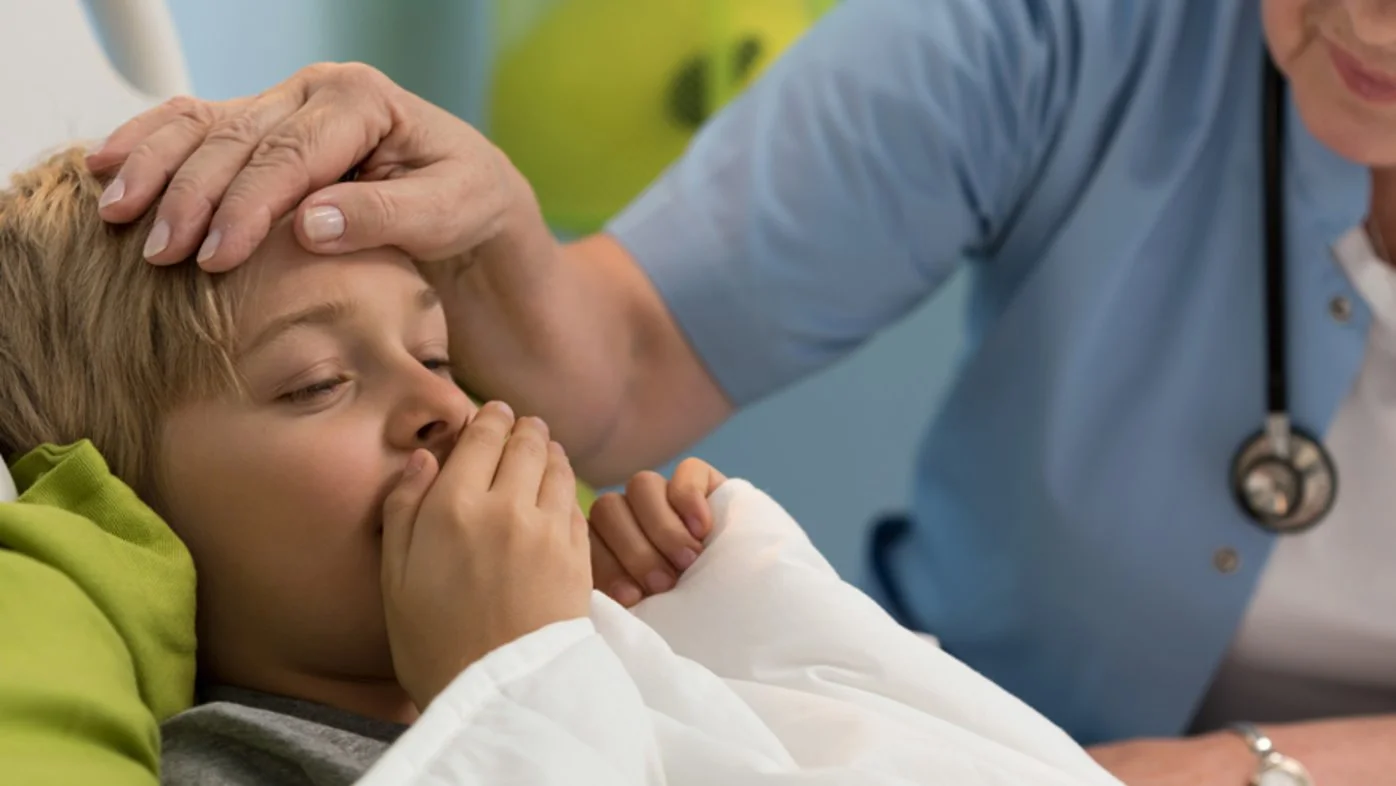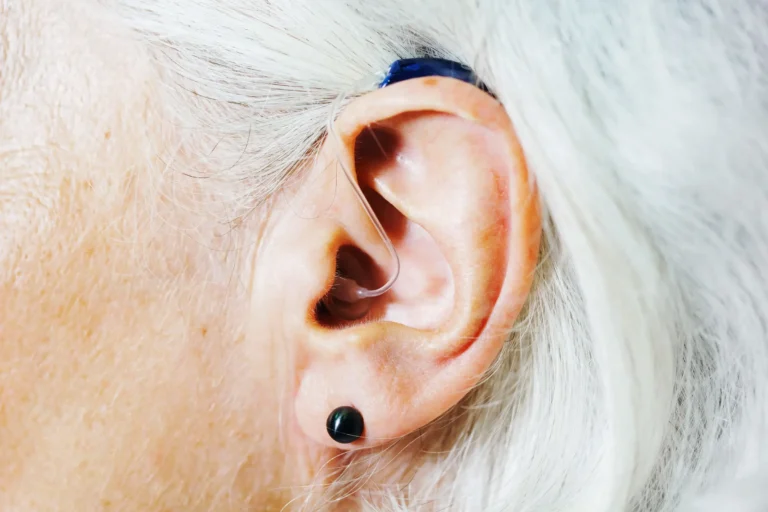Navigating the Terrain of Whooping Cough: Welcome to our blog, where we’ll be delving into the fascinating and sometimes alarming world of whooping cough. This highly contagious respiratory infection has been making headlines lately, and it’s crucial that we navigate its terrain with knowledge and caution. From understanding the symptoms to exploring treatment options, we’re here to equip you with all the information you need to protect yourself and your loved ones from this viral 100-day infection. So let’s dive in and uncover the secrets of whooping cough!
Table of Contents
What is Whooping Cough?
Whooping cough, also known as pertussis, is a highly contagious respiratory infection caused by the bacterium Bordetella pertussis. It gets its name from the distinctive “whooping” sound that occurs when an infected person tries to breathe in after a bout of severe coughing fits.
This infection primarily affects the respiratory system and can be particularly dangerous for infants and young children. The bacteria spread through droplets in the air when an infected person coughs or sneezes, making it easy for the disease to spread rapidly within communities.
The initial symptoms of whooping cough may resemble those of a common cold – runny nose, mild fever, and occasional cough. However, over time, this seemingly harmless cough intensifies into prolonged episodes of rapid and violent coughing followed by a deep inhalation that produces the characteristic “whoop” sound.
It’s important to note that not everyone with whooping cough experiences this classic symptom. In some cases, especially among adults or older children who have been vaccinated or previously infected with pertussis, the illness may present itself without distinct signs like prolonged paroxysmal (severe) coughing or whoop sounds.
Stay tuned as we dive deeper into understanding the symptoms and causes of this highly contagious infection!
Understanding the Symptoms and Causes
Whooping cough, also known as pertussis, is a highly contagious respiratory infection. It gets its name from the characteristic “whoop” sound that occurs when an infected person tries to breathe in after a bout of violent coughing.
The symptoms of whooping cough can vary depending on the age of the patient. In infants, it often starts with mild cold-like symptoms such as a runny nose and low-grade fever. However, as the infection progresses, severe bouts of uncontrollable coughing may occur, often followed by vomiting or difficulty breathing.
In older children and adults, whooping cough may present itself more subtly with persistent coughing fits that can last for several weeks or even months. These individuals may not experience the distinctive “whoop” sound but could still pass on the infection to others without realizing it.
It’s important to note that whooping cough is caused by bacteria called Bordetella pertussis. The bacteria are spread through droplets released into the air when an infected person sneezes or coughs. This makes crowded places like schools and daycare centers prime locations for transmission.
To further complicate matters, whooping cough has been on the rise in recent years due to decreasing vaccination rates. While vaccinations are generally effective at preventing this disease, they are not 100% foolproof.
Understanding the symptoms and causes of whooping cough is crucial in preventing its spread within communities and protecting vulnerable populations such as infants and those with weakened immune systems. By staying informed about this illness and taking necessary precautions – such as getting vaccinated – we can work together towards reducing its impact on public health.
The Importance of Vaccinations
Vaccinations play a crucial role in protecting ourselves and our communities from various diseases, including whooping cough. By getting vaccinated, we not only safeguard our own health but also contribute to the overall public health and well-being.
One of the primary reasons vaccinations are important is their ability to prevent the spread of infectious diseases. Whooping cough, caused by the bacterium Bordetella pertussis, can be highly contagious and easily transmitted from person to person through respiratory droplets. Getting vaccinated against whooping cough significantly reduces the risk of becoming infected and spreading it to others.
Furthermore, vaccinations provide long-lasting immunity against specific diseases. In the case of whooping cough, receiving a vaccine stimulates our immune system to produce antibodies that recognize and fight off the bacteria responsible for causing infection. This immunity can last for years or even a lifetime in some cases.
By vaccinating ourselves and our children against whooping cough, we create what is known as herd immunity. This occurs when a significant portion of the population is immunized, making it difficult for infections to spread within that community. Herd immunity protects those individuals who cannot receive vaccines due to medical reasons or compromised immune systems.
It’s important to note that vaccination not only benefits individuals but also helps protect vulnerable populations such as infants too young to be fully immunized or individuals with weakened immune systems due to other medical conditions.
In conclusion , getting vaccinated against whooping cough is an essential step in preventing its transmission within our communities while ensuring personal protection from this potentially serious disease. Let us take action today by staying up-to-date on recommended vaccinations and promoting awareness about their importance among family members, friends, and colleagues!
Treatment Options for Whooping Cough
Treatment options for whooping cough can vary depending on the severity of the infection and the age of the individual affected. In many cases, antibiotics are prescribed to help reduce symptoms and prevent further complications. These medications can help shorten the duration of the illness and make it less severe.
For infants under 6 months old, hospitalization may be necessary to closely monitor their condition and provide supportive care. This includes ensuring they receive enough fluids, oxygen therapy if needed, and close observation for any signs of respiratory distress.
In addition to antibiotics, doctors may also recommend over-the-counter medications to relieve symptoms such as cough suppressants or fever reducers. It’s important to consult with a healthcare professional before giving any medication to children.
Alongside medical treatment, there are several home remedies that can help ease symptoms. Maintaining good hydration by drinking plenty of fluids is essential in keeping airways moist and reducing coughing fits. Using a cool-mist humidifier or taking warm showers can also provide relief by soothing irritated airways.
Rest is crucial during recovery from whooping cough as it allows the body time to heal and regain strength. Eating nutritious foods rich in vitamins A and C can support immune function and aid in faster recovery.
Remember that prevention is always better than cure when it comes to whooping cough. Vaccinations play a crucial role in protecting against this highly contagious disease. Ensuring you’re up-to-date on your vaccinations not only helps safeguard yourself but also contributes to preventing its spread within communities.
By being proactive about vaccination, staying informed about symptoms, seeking early medical intervention when necessary, following recommended treatments diligently, maintaining good hygiene practices such as frequent handwashing, covering your mouth when coughing or sneezing – we all have an active role in preventing the spread of whooping cough!
Stay tuned for more information on how you can take action against this viral 100-day infection!
Home Remedies to Help Ease Symptoms
When it comes to easing the symptoms of whooping cough, there are several home remedies that can provide relief. These natural remedies can help alleviate the discomfort and support a faster recovery.
One effective home remedy for whooping cough is drinking plenty of fluids. Staying hydrated helps to thin mucus secretions and soothes irritated airways. Opt for warm herbal teas, clear broths, and water to keep your body well-hydrated.
Gargling with saltwater is another simple yet effective remedy. Mix half a teaspoon of salt in a glass of warm water and gargle this solution several times a day. Saltwater helps reduce inflammation in the throat and provides temporary relief from coughing fits.
Steam inhalation is also beneficial for soothing respiratory symptoms associated with whooping cough. Fill a bowl with hot water, place your face over it, drape a towel over your head, and inhale deeply. The steam helps to loosen mucus congestion in the airways.
Using honey as a natural cough suppressant can also bring comfort during bouts of coughing. Mix one tablespoon of honey with warm water or herbal tea and drink it before bedtime or whenever you feel the need to relieve irritation in your throat.
It’s important to note that while these home remedies may help ease symptoms temporarily, they do not replace medical treatment or vaccination against whooping cough. It’s always best to consult with healthcare professionals for proper diagnosis and guidance on managing this condition effectively
How to Prevent the Spread of Whooping Cough
Preventing the spread of whooping cough is of utmost importance to protect not only yourself but also those around you. Here are some practical steps you can take to help stop the transmission:
Vaccination: The most effective way to prevent whooping cough is through vaccination. Make sure you and your family members are up-to-date on their immunizations, as this will greatly reduce the risk of contracting and spreading the infection.
Practice good hygiene: Wash your hands frequently with soap and water, especially after being in public places or around someone who may be sick. Encourage others to do the same, particularly children.
Cover your mouth and nose when coughing or sneezing: Use a tissue or your elbow to cover your mouth and nose when coughing or sneezing, rather than using your hands. This helps prevent respiratory droplets from being released into the air, where they can easily infect others.
Avoid close contact with infected individuals: If someone in your household has been diagnosed with whooping cough, try to limit close contact until they have completed their treatment and are no longer contagious.
Stay home if you’re sick: If you develop symptoms such as severe coughing fits accompanied by a “whoop” sound, fever, or runny nose, it’s important to stay home from work or school until you’ve received appropriate medical treatment.
By taking these precautions seriously and encouraging others to do so as well, we can collectively make a difference in preventing the further spread of whooping cough within our communities!
Conclusion: Navigating the Terrain of Whooping Cough
In light of the seriousness and potential complications associated with whooping cough, it is crucial to take swift action to protect yourself and those around you. By understanding the symptoms and causes of this highly contagious respiratory infection, you can be better prepared to identify it early on.
Vaccination remains one of the most effective ways to prevent the spread of whooping cough. Ensure that you and your loved ones are up-to-date on all recommended vaccinations, including booster shots as needed.
If you or a family member does contract whooping cough, seeking prompt medical attention is essential. Treatment options such as antibiotics can help alleviate symptoms, reduce the duration of illness, and minimize transmission to others.
Additionally, there are some home remedies that may provide relief from whooping cough symptoms. These include staying hydrated, using a humidifier or steam inhalation for congestion relief, practicing good hand hygiene, and getting plenty of rest.
To prevent further spread of whooping cough within your community:
Encourage anyone experiencing symptoms or diagnosed with whooping cough to stay home until they have completed their antibiotic treatment.
Practice proper respiratory etiquette by covering your mouth when sneezing or coughing.
Maintain clean surfaces by regularly disinfecting commonly touched objects.
Educate yourself and others about whooping cough prevention strategies through reliable sources like healthcare professionals or reputable websites.
Stay informed about outbreaks in your area so that necessary precautions can be taken.
Remember that protecting vulnerable populations such as infants too young for vaccination relies on everyone’s efforts in preventing the spread of infectious diseases like whooping cough.
By taking action against this viral 100-day infection through vaccination, timely treatment if infected,
and practicing good hygiene habits both at home and in public places,
we can collectively work towards reducing its impact on individuals and communities alike.
Stay vigilant and play an active role in safeguarding yourself and those around you from whooping cough. Together, we can make a difference in







